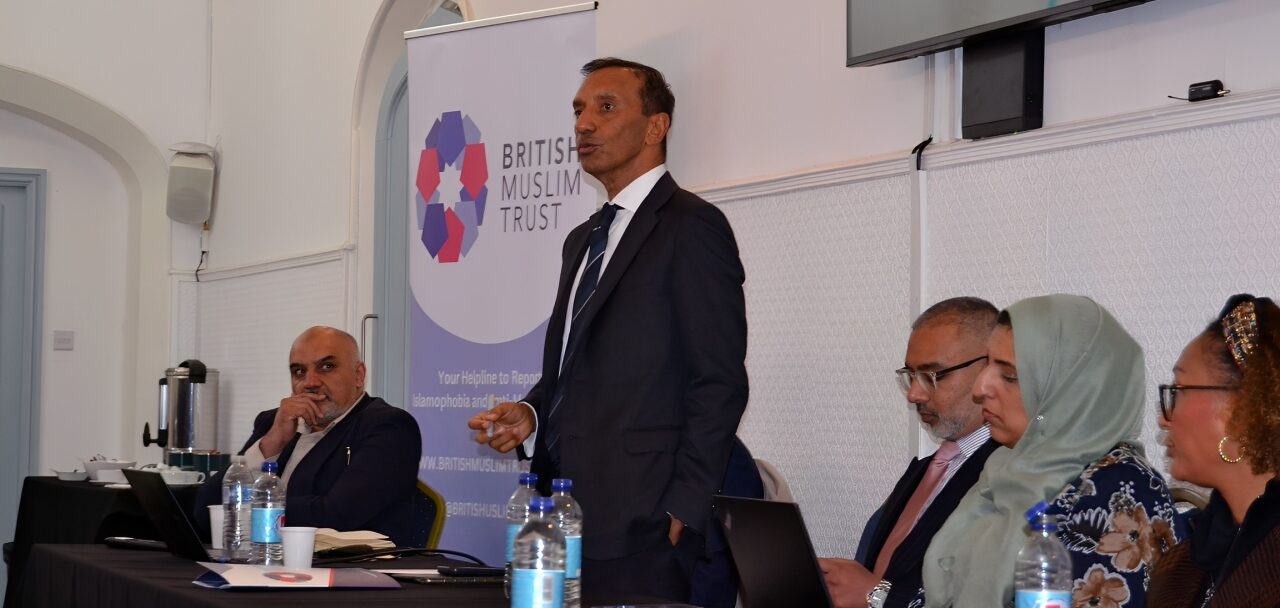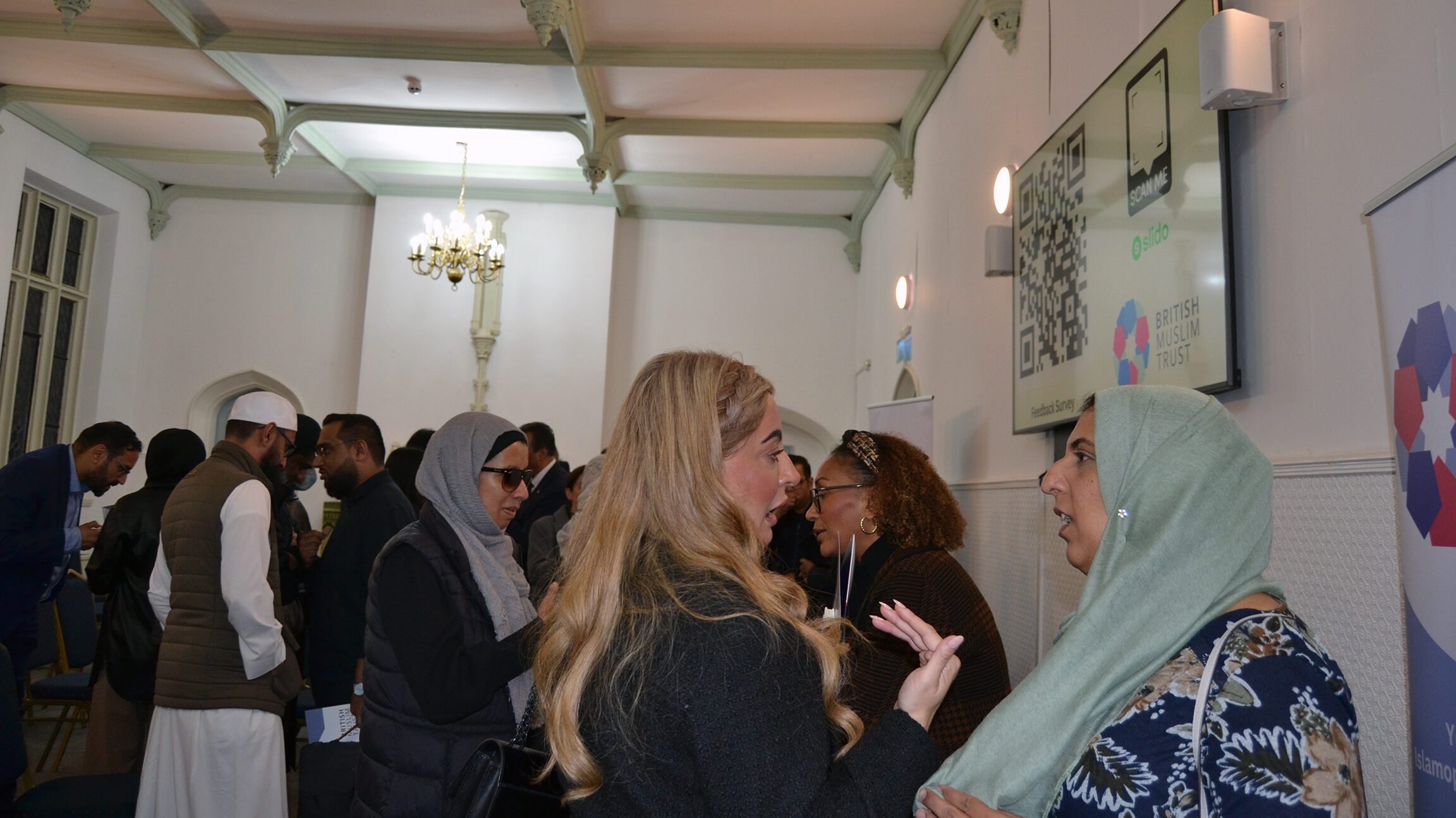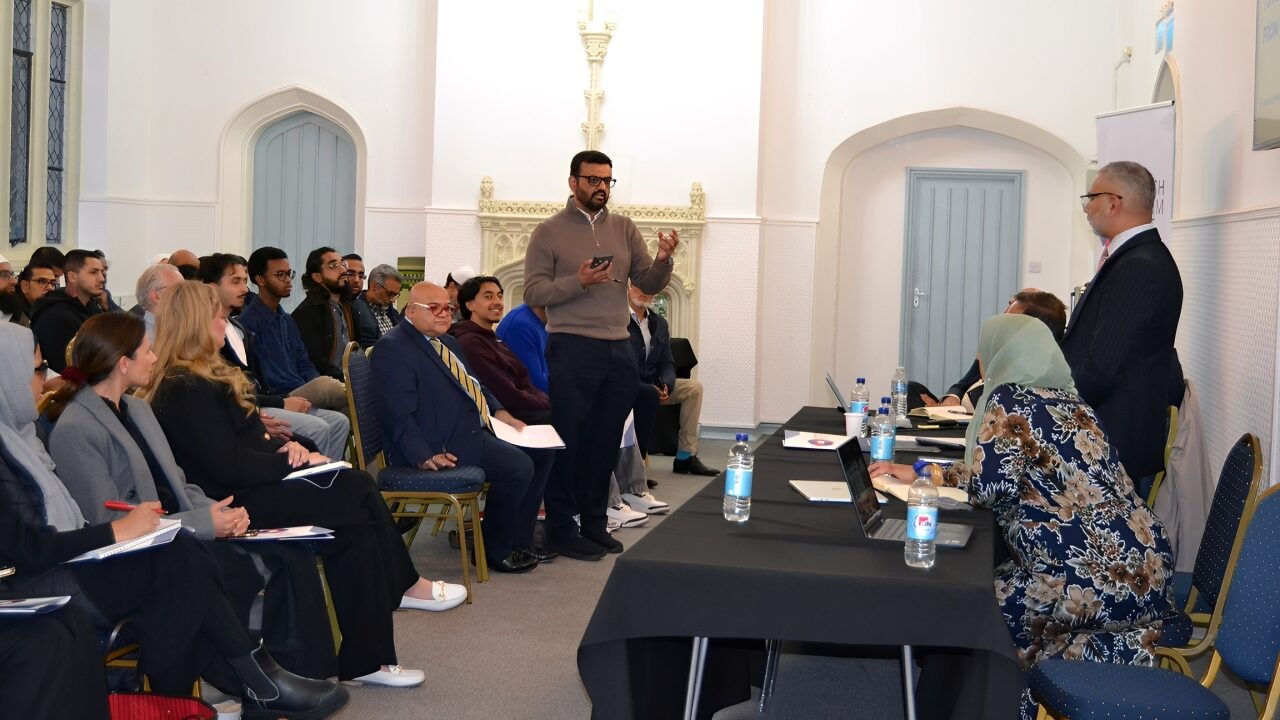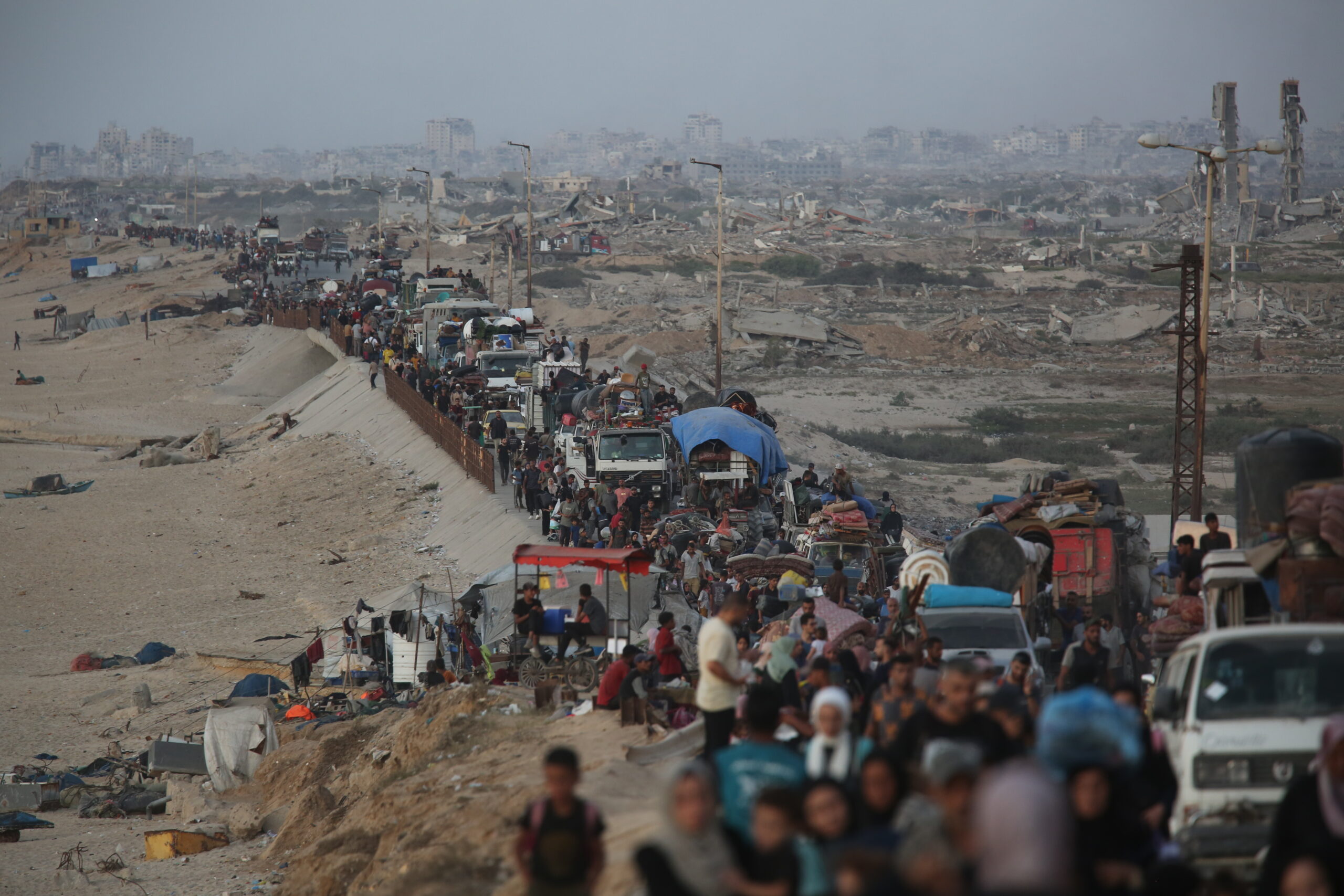
Musa Naqvi, Home Affairs Correspondent
A new national initiative, the British Muslim Trust (BMT), has launched with a mission to systematically monitor, report, and combat Islamophobia across the UK, aiming to shatter what its founders describe as a decades-long cycle of community frustration and political underrepresentation.
The launch took place in Manchester at the first of a planned 20-city national roadshow, where BMT Chair and founding director Shabir Randeree outlined a strategy built on three core pillars: winning community trust, ensuring absolute transparency, and building a robust (traction), and credible data operation.
The BMT, which has secured government funding, will operate a multi-channel reporting system—including a dedicated phone line and online portal—for victims of anti-Muslim hate to log incidents. This data will then be used to hold authorities accountable and provide an accurate, national picture of Islamophobia for the first time.

British Muslim Trust (BMT) roadshow launch in Manchester. (Credit: British Muslim Trust)
In an exclusive interview with The Muslim News, Randeree acknowledged the profound scepticism the new body faces but argued that a direct, face-to-face approach was the only way to build the essential trust required for the project to succeed.
“We sat down in a very non-typical way for a Muslim organisation. We tend to set up organisations from our heart rather than from our brain,” Randeree stated. “The counsel I took was from people of faith who I trust and people of intellect who have strategically designed successful organisations. We came out with this strategy: if we can’t deliver on these three pillars, we’ve got no chance.”
The first pillar, community trust, is the driving force behind the intensive roadshow. Randeree aims to win over the stakeholders across the Muslim communities, whilst accepting that not every community member will be supportive. “We need to get out, meet the communities, hear from them the frustrations… and also hear from those who are willing to support us,” he said, emphasising that the Trust is seeking not just support but active “help” in encouraging reporting.
The second pillar, governance, is personal for Randeree, a banker by profession. “We are using taxpayers’ money… We have full governance structures,” he said, noting that the board includes one of the country’s top Muslim lawyers from a Magic Circle firm and the highest-ranking Muslim woman in an audit firm.
The third pillar is “traction,” reliant on collecting data in a methodical way that will be “acceptable to the people who record Islamophobia and hate crime.” The BMT has already consulted extensively with other established hate crime monitoring organisations, including those from the Jewish community, using their blueprints to accelerate its own technical development. A soft launch of its reporting technology is expected by October.
A central challenge the BMT must overcome is the chronic under-reporting of Islamophobic incidents. When asked why Muslims often do not report hate crime, Randeree pointed to a fundamental breakdown in trust.
“If I am a victim of a Muslim hate crime, why would I bother recording it if it’s not going to reach” he asked. The BMT’s strategy to counter this involves not only community engagement but also implementing rigorous, bank-like validation protocols for every report to ensure the data is legally and statistically credible for media and government bodies.
“If I went to a media source and said, ‘50% up on Islamophobia in my area in Blackburn,’ they’ll say, ‘Where’s the data for it?’” Randeree explained. “And then they’ll say, ‘Who took the phone calls? How did you validate the person?’… That’s what we intend to do.”
Founder addresses funding criticisms and outlines a vision beyond traditional hate crime reporting.
The decision to embark on a national roadshow, rather than rely solely on social media and Muslim media campaigns, is rooted in past experience. Randeree referenced his time as a founding director of the Islamic Bank of Britain, where he believes a lack of initial community consultation was a strategic error.
“The easier route for us would be using social media and media because everybody’s got a phone in their hand,” he admitted. “My style… is I’d rather see people in their eye and try and engage them. Out of every ten doubting Thomases, if we can get even half to give us the benefit of the doubt and help us, then it would be a success.”
This approach also forms the core of his plan for accountability: “God forbid there’s an attack in Cardiff and it’s not reported properly… I want them to hold BMT responsible for that. And that works better face-to-face.”

Musa Naqvi of The Muslim News poses questions to the British Muslim Trust during its roadshow in Manchester. (Credit: British Muslim Trust)
The BMT will initially use existing legal definitions of hate crime rather than waiting for the outcome of the ongoing government review into a formal definition of Islamophobia.
On the political front, Randeree confirmed that despite the departure of key ministers like Angela Rayner and Lord Wajid Khan, the government department (MHCLG) has reassured the Trust that its funding and remit remain on track, with the operational team they deal with unchanged.
Addressing wider frustrations about Muslim representation, Randeree spoke passionately as a British Muslim rather than just a BMT chair. “The majority of us are law-abiding, good people… We are not all anti-Semitic,” he said, expressing deep frustration at the community’s portrayal. He positioned the BMT as one part of a larger ecosystem of emerging Muslim organisations working on policy and research to finally get “a seat at the table.”
He directly confronted criticism of accepting government funding. “It’s taxpayers’ money, it’s not government money. They’re giving huge amounts of money to other organizations which are not Muslim. Why should we not also receive, for 4 million Muslims, an amount of money that can improve our lives?”
Looking beyond immediate hate crime reporting, Randeree revealed that the BMT has budget allocated to explore under-examined areas of anti-Muslim sentiment, specifically mentioning systemic issues within healthcare raised at the meeting.
“We’ve left some budget to listen around the country and then go off-piste,” he said, noting that disparities in healthcare outcomes and cultural sensitivity for Muslims, exacerbated during COVID-19, represent a potential area for future focus. “There must be some very useful data… that we can extrapolate.”
This suggests a long-term vision for the BMT to evolve into a body that not only records hate crime but also champions broader social justice issues affecting British Muslims, once the foundational trust and reporting mechanisms are firmly in place.
Feature photo: British Muslim Trust (BMT) Chair Shabir Randeree speaks at the launch of a national roadshow in Manchester. The event is the first of 20 planned nationwide. (Credit: British Muslim Trust)
For more info or to report an incident, visit the BMT website:
Visit BMT Website Report Anti-Muslim HateClick the buttons above to access BMT resources or report incidents safely.


